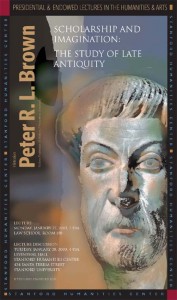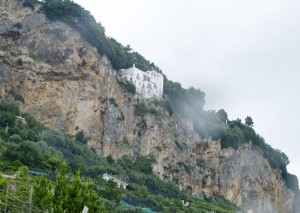Grisha Friedin, Isaac Babel shared rough neighborhoods and a longing for literature
Tuesday, January 31st, 2012I was in the U.K. when Grisha Freidin gave his talk in the “How I Think About Literature” series last fall, but Isaac Babel‘s biographer sounds characteristically feisty in Luke Parker‘s account:
“What is the difference between what I write and what Babel wrote? The difference is I have footnotes,” says Gregory Freidin, Professor of Slavic Languages and Literatures and expert on Russian writer Isaac Babel. “What we do here is falsifiable. What he does is not falsifiable. You don’t like Babel, write your own.”
A little background on Grisha from my article two years ago:
As a teenager in the mid-1960s, Gregory Freidin moved with his family to a rough side of Moscow, to what he described as a neighborhood notorious “for its Jewish thieves, counterfeiters and dealers in stolen goods.” He had entered “the Jewish underworld.” In short, the Soviet kid discovered Isaac Babel’s world.
Freidin is now perhaps the world’s foremost scholar on Babel, the Russian-Jewish short story writer, playwright and journalist. He is throwing a spotlight on the writer who described the horrors of war and the gangsters of Odessa with trademark irony and acute observation.
Grisha’s lifelong exploration of literature was fueled, as described in Parker’s account, by the longing for that “other story” which “he had suspected, even in his Stalinist childhood, might exist outside the walls of his Moscow tenement”:
This “other story” fuelled his search for the wellsprings of literature’s affective power – a power that in 1962 erupted with the publication of Solzhenitsyn’s One Day in the Life of Ivan Denisovich. Although a “pretty thin book, a long short story really,” nonetheless “it for a moment outweighed the Kremlin and the mighty Soviet state.” Ivan Denisovich permitted millions publicly to mourn the victims of the Gulag, forcing the Kremlin into a tactical show of penance before the people: a Soviet civil society had been born, producing an effect “greater than 9/11.” It was to explain events such as these, showcasing literature’s moments of extraordinary power, that Grisha turned in his work to the fields of cultural anthropology, the sociology of religion, and psychoanalytic theory.
You can read a short account of the talk here. Or, for that matter, you can read Grisha talking about his enthusiasm for Babel in my account here:
“He created archetypal stories about modern Jewish childhood, about intellectuals and violence, the violence that accompanied Russia’s transition to modernity and the revolution in which Russia’s Jews were both uplifted and victimized,” said Freidin. …
“Babel is a writer who forces you to confront yourself,” said Freidin. “Babel makes art out of unsettling your point of view by irony. You have to follow his game and test your own ability to follow his ironic twists and turns.”
The violence in this pacifist writer continues to fascinate Freidin: “He was probably, to my mind, the greatest writer to portray violence, as it were, without judgment – and at the same time show its horror, and beauty, and the great pleasure people get from violence, while somehow sneaking in his pacifism as well.”
Or, for a third option, watch my video interview with Grisha below:


























